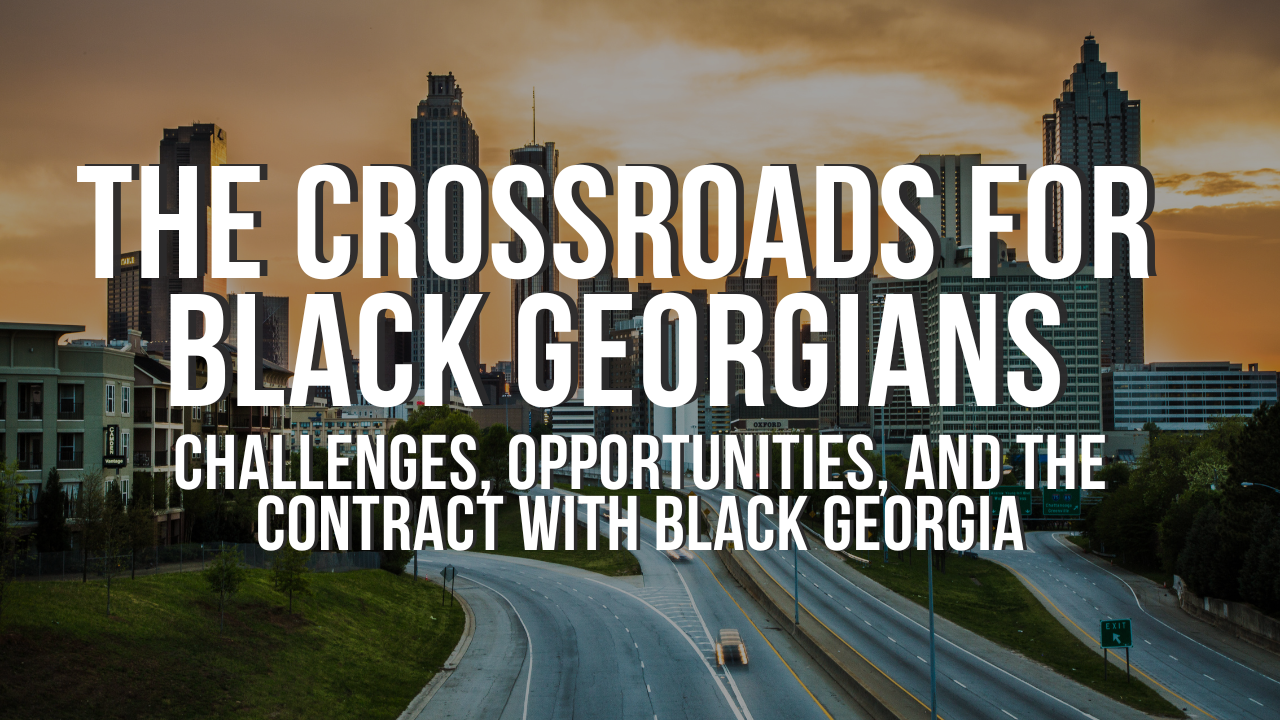The Crossroads for Black Georgians: Challenges, Opportunities, and the Contract with Black Georgia

Georgia, rich in its cultural tapestry, has been a pivotal state in shaping America's political and socio-economic landscape. Historically, the African-American community in Georgia has been at the forefront of many battles, be it civil rights or, more recently, the 2020 elections. But with every stride made, i deeply rooted in systemic issues, institutionalized discrimination, and long-standing socio-economic gaps.
The Challenges:
Economic Barriers:Black Georgians face persistent income inequality, notable wealth gaps, limitations in accessing credit, and high unemployment rates. The nexus between education and job opportunities further intensifies these challenges.
Social Concerns:Patterns of institutionalized racism manifest in areas such as voter suppression, inadequate mental health support, and a disproportionate incarceration rate, curtailing the Black community's full participation in Georgia's societal framework.
Environmental Issues:Environmental racism, limited access to green spaces, and the adverse effects of climate change disproportionately harm Black Georgians.
Health Disparities:Chronic diseases, higher infant mortality rates, and distinct health challenges underline the systemic healthcare gaps faced by Black men and women in Georgia.
Educational Inequalities:For Black students, there's an educational attainment gap, digital divide, chronic underfunding in Black-majority schools, and unique challenges for Historically Black Colleges and Universities (HBCUs).
Infrastructure Gaps:These disparities manifest as deserts in various essential services, from healthcare to housing, negatively affecting the Black community's quality of life.
Governance & Political Challenges:From voter suppression to gerrymandering, the need for political representation that genuinely mirrors Georgia's diverse Black community remains unmet.
The Pivotal Role of Black Georgians in 2020:
Black voters, with their unwavering commitment to change, played an instrumental role in the victories of Raphael Warnock, John Ossoff, and Joe Biden in Georgia. Their mobilization and vote turnout were testament to their belief in a brighter future. However, the return on their investment seems bleak or almost nonexistent. The promises made during the election campaigns have been slow to materialize, leading to a sense of disillusionment.
The Future: Awaiting the Contract with Black Georgia:
As the 2024 elections approach, the Democratic Party, and President Biden, in particular, stand at a crossroads with Black Georgia voters. While these voters are not inclined to switch to the Republican side, their faith in the Democratic establishment has waned. An anti-Trump message might not be enough this time around. The party needs to provide tangible solutions to the challenges faced by Black Georgians.
Enter the "Contract with Black Georgia." This proposed effort acknowledges the challenges faced by the Black community and presents an opportunity to rectify them. It emphasizes dialogue, informed legislation, and tangible change. But more than promises, Black Georgians seek action. Their vote in 2024 will hinge on the palpable changes they witness in their communities.
In conclusion, the challenges faced by Black Georgians are not insurmountable. With informed policies, genuine efforts, and the Contract with Black Georgia, there lies an opportunity to rewrite the narrative. The ball is in the court of those who sought their votes, and time will tell if they can deliver on their promises.